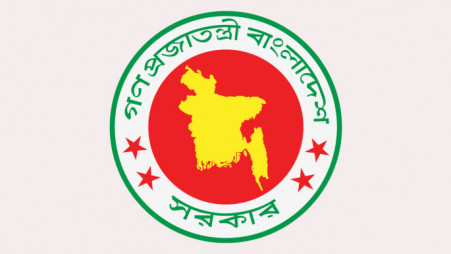Govt raises special incentive for employees to 15% from July
The move is expected to cost the government approximately Tk7,000 crore

Highlights
- Employees in grades 10-20 will get an additional 10%
- Grades 1-9 will receive an extra 5%
- Totalling 15% and 10%, respectively
- Last pay structure update was in 2015
- Govt cites high inflation, delayed salary revisions as reasons for this hike
- Experts warn the hike could fuel inflation and inequality
- Urges complementary measures for social equity
The government has issued a circular approving the proposal to increase special incentives for public employees to 15% from the current 5%, starting July.
The circular was issued today (3 June), a day after the Tk789,999 crore budget for FY26 was proposed by the finance adviser yesterday.
Under the new plan, officers and employees in grades 10 to 20 will receive a total of 15% special incentive, which includes the existing 5%. Meanwhile, those in grades 1 to 9 will get a total of 10%. This means an additional 10% incentive for grades 10 to 20 and an additional 5% for grades 1 to 9.
The move is expected to cost the government approximately Tk7,000 crore.

Before the 2024 elections, then prime minister Sheikh Hasina had announced an additional 5% special incentive on top of the annual 5% increment for government employees, effective from July 2023, to offset high inflation.
Finance Adviser Salehuddin Ahmed announced the increase in the special incentive yesterday during the budget speech for the upcoming fiscal year. However, the budget documents did not specify the exact increase amount.
"Considering the fact that there has been no new pay structure since 2015, we are proposing to increase the special benefits for government employees," Salehuddin said.
For the upcoming fiscal year, Tk84,114 crore has been allocated for government employees' salaries and allowances. This is higher than the original allocation of Tk81,580 crore in the current fiscal year, which was later reduced to Tk79,247 crore in the revised budget.
Nearly 50,000 government employees are expected to retire next year, which will raise the number of pensioners to 8.5 lakh. Despite rising pension costs, the allocation for salaries and allowances is not increasing proportionally, even with the higher special incentives.
When asked about the increase, Fahmida Khatun, executive director of the Centre for Policy Dialogue, told TBS, "Inflationary pressure is increasing on everyone. To control it, the Bangladesh Bank has adopted a contractionary monetary policy. At a time like this, if the government increases special benefits for its employees, it may further fuel inflation.
"According to various estimates, increasing these benefits would lead to an extra cost of nearly Tk7,000 crore. This could also worsen inequality, since the private sector is unlikely to raise salaries."
She added, "In such a situation, the government must take other steps to ensure social equity, so that people in the private sector do not bear a heavier tax burden. To reduce financial pressure on them, government services should be made available at low or no cost."



 Keep updated, follow The Business Standard's Google news channel
Keep updated, follow The Business Standard's Google news channel















